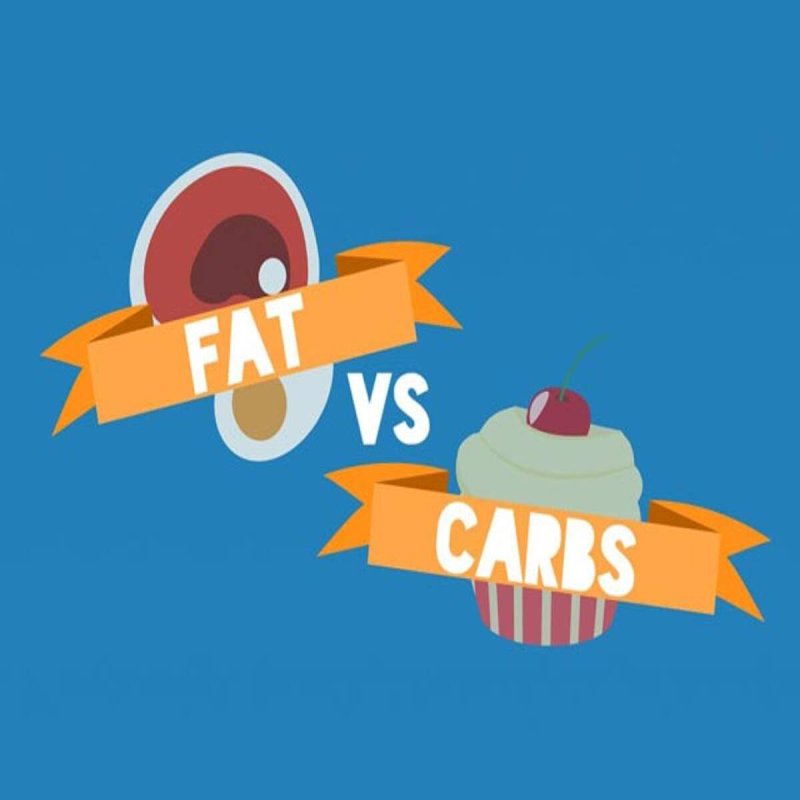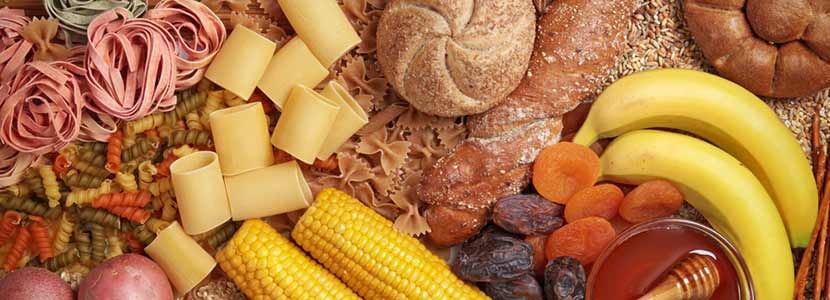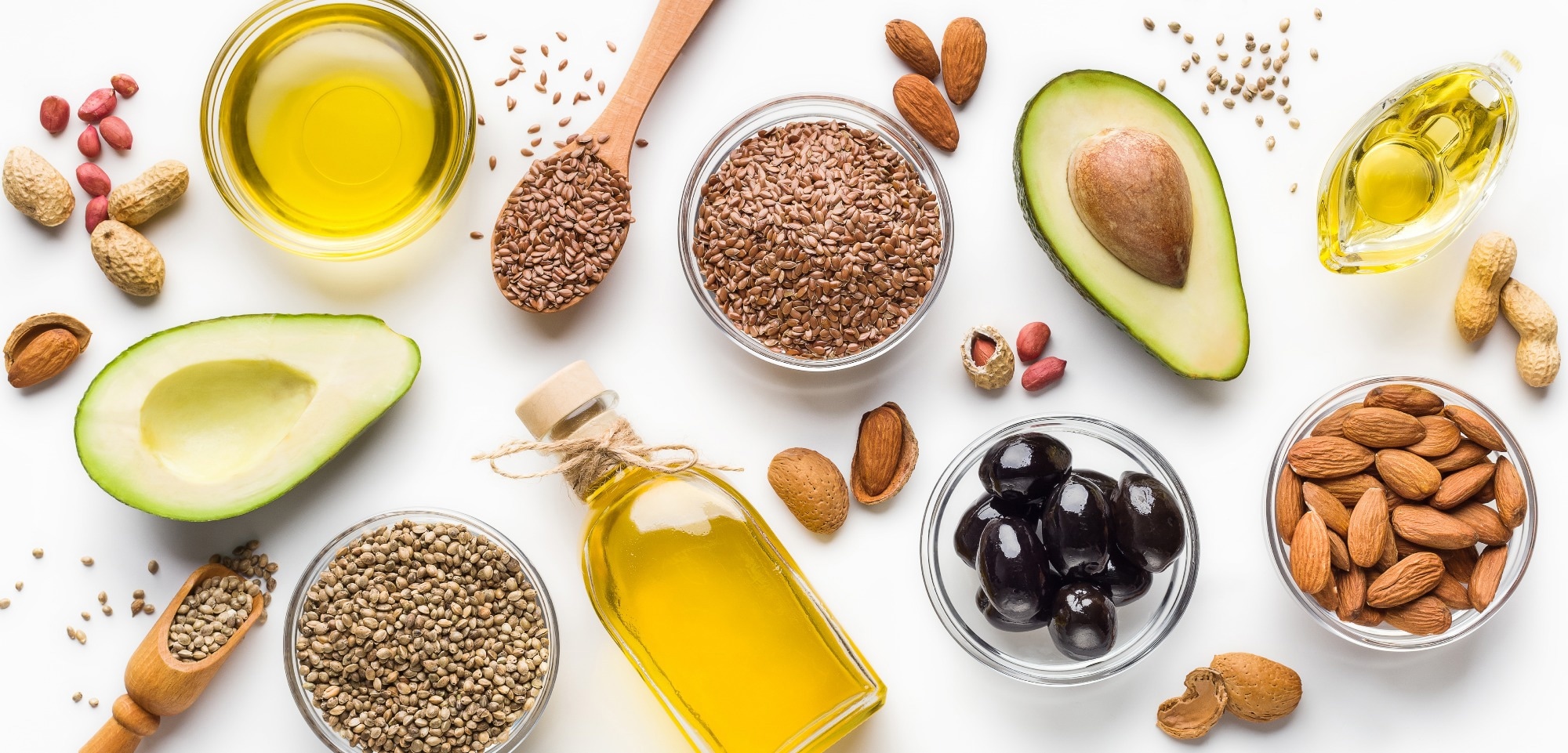
In this text, we'll explore the world of carbohydrates and fats, two important sources of energy for our bodies. Carbs are a vital nutrient found in various foods like fruits, vegetables, grains, and sugary treats. Our cells use glucose, derived from carbs, to produce energy and excess glucose gets stored as glycogen. While carbs have several benefits, including providing a steady source of energy and boosting brain function, overindulging in simple carbs, like those found in candy and soda, can lead to weight gain and health problems. On the other hand, fats are an efficient source of energy and can help us feel full and satisfied. Healthy fats, like those found in nuts, seeds, and oils, have many health benefits, while saturated and trans fats can increase the risk of heart disease. Overall, it's important to choose the right types of carbs and fats to keep our bodies healthy and energized.

Carbohydrates
Did you know that carbs are super important for our bodies? They're the main source of energy that our cells use to keep us going. You can find carbs in all sorts of delicious foods, like fruits, veggies, grains, and even sugary treats. When we eat carbs, they break down into glucose, which our cells use to produce energy. And get this: any extra glucose that our cells don't need right away gets stored in our liver and muscles as glycogen, kind of like a reserve tank for later. So, it's important to make sure we're getting enough carbs in our diet to keep our energy levels up.

Benefits of Carbohydrates
One of the most attractive things about carbs is how quickly our bodies can turn them into energy. It's like they're the fast lane for fueling our activities and workouts. That's why a lot of athletes and active people make sure to include plenty of carbs in their diet.
Carbs also have a big role to play in brain function. Our brains need a steady supply of glucose to work properly, and carbs are the best way to provide that glucose. In fact, studies have shown that low-carb diets can lead to decreased cognitive function, like problems with memory and concentration. So, next time you're feeling a little foggy, maybe try reaching for a carb-rich snack to give your brain a boost.
Drawbacks of Carbohydrates
So, while carbs are important for our bodies, it's also possible to have too much of a good thing. When we eat more carbs than our bodies can use, the excess glucose gets stored as fat. And unfortunately, that can lead to problems like weight gain, insulin resistance, and even type 2 diabetes.
But wait, there's more! Not all carbs are created equal. Simple carbs, like the ones in candy and soda, can cause a quick spike in our blood sugar levels, leading to a dreaded "sugar crash" that leaves us feeling drained. On the other hand, complex carbs, like the ones in whole grains and veggies, break down more slowly and provide a steady source of energy. So, it's important to choose our carbs wisely and make sure we're not overdoing it on the sweets and treats.
Fats
Fats, on the other hand, are often viewed as the enemy when it comes to weight loss and overall health. However, fats are an essential nutrient that plays many important roles in our bodies. Fats are found in many different foods, including nuts, seeds, oils, and animal products.

Did You Know?
Carbs retain around 3 grams of water per gram, while fats retain only 0.1 grams of water per gram.
Benefits of Fats
Fats are interesting too when it comes to being an energy source for our bodies. One of the biggest benefits of using fats for energy is that they're a more efficient fuel source than carbs. When we eat fats, they get broken down into fatty acids, which our cells can use to make energy. Also, fatty acids can be turned into ketones, which the brain can use as an alternative source of energy.
Eating fat can also help us feel full and satisfied. When we eat foods that are high in fat, like nuts or avocados, we're less likely to feel hungry soon after. This can help prevent overeating and even promote weight loss. So, don't be afraid to include healthy fats in your diet; your body will thank you for it!
Drawbacks of Fats
However, not all fats are created equal. Saturated fats, which are found in animal products such as butter and meat, have been linked to an increased risk of heart disease. Trans fats, which are found in processed foods such as margarine and fried foods, are even worse and should be avoided altogether.
On the other hand, unsaturated fats, which are found in nuts, seeds, and oils, have been shown to have many health benefits. These fats can help to reduce inflammation in the body, lower cholesterol levels, and improve heart health.
Conclusion
So, to sum it all up, both carbs and fats are super important when it comes to keeping our bodies fueled with energy. But, as with most things in life, it's all about balance and making good choices. When it comes to carbs, complex ones found in whole grains and veggies are a better bet than the simple ones that can mess with our blood sugar levels. And when it comes to fats, unsaturated ones found in nuts and oils are way healthier than saturated and trans ones. So, make sure you're choosing the right types of carbs and fats to keep your body feeling happy and healthy!
:max_bytes(150000):strip_icc()/145071968-56a471373df78cf772826aff.jpg)
Frequently Asked Questions (FAQs)
1. Is it better to eat fats or carbs?
Ans: Generally, a balanced diet that includes a moderate amount of both fats and carbs is recommended for most people. It is important to choose healthy sources of these macronutrients, such as fruits, vegetables, whole grains, lean proteins, nuts, and seeds, and limit intake of processed foods, saturated and trans fats, and added sugars.
2. Why eat fat instead of carbs?
Ans: Eating fat instead of carbs can provide longer-lasting energy, increased satiety, improved nutrient absorption, and enhanced taste and enjoyment. However, it's important to choose healthy sources of fats and consume them in moderation as part of a balanced diet.
3. Do carbs or fats make you gain fat?
Ans: Eating an excessive amount of either carbohydrates or fats can lead to weight gain, as both macronutrients can contribute to excess calorie intake. However, it's important to note that the type and quality of the carbs and fats consumed also play a role in weight gain, as some sources are more easily stored as body fat than others. A balanced diet that includes moderate amounts of healthy carbohydrates and fats, along with a variety of other nutrient-rich foods, is key for maintaining a healthy weight.
4. Does exercise burn fat or carbs?
Ans: During exercise, the body burns a combination of carbohydrates and fats for energy, with the proportion varying depending on the intensity and duration of the activity. Low-intensity exercise primarily burns fat, while higher-intensity exercise relies more on carbohydrates. However, the body never exclusively burns one type of fuel over the other, even during low-intensity exercise.
5. Do carbs build muscle?
Ans: Carbohydrates provide the body with energy to fuel workouts and other physical activity, and they also play a role in muscle building and recovery. Consuming an adequate amount of carbohydrates is important for providing the body with the energy it needs to complete workouts and build muscle. However, other factors such as protein intake, overall calorie intake, and training intensity and frequency are also important for building and maintaining muscle mass.


.png)


